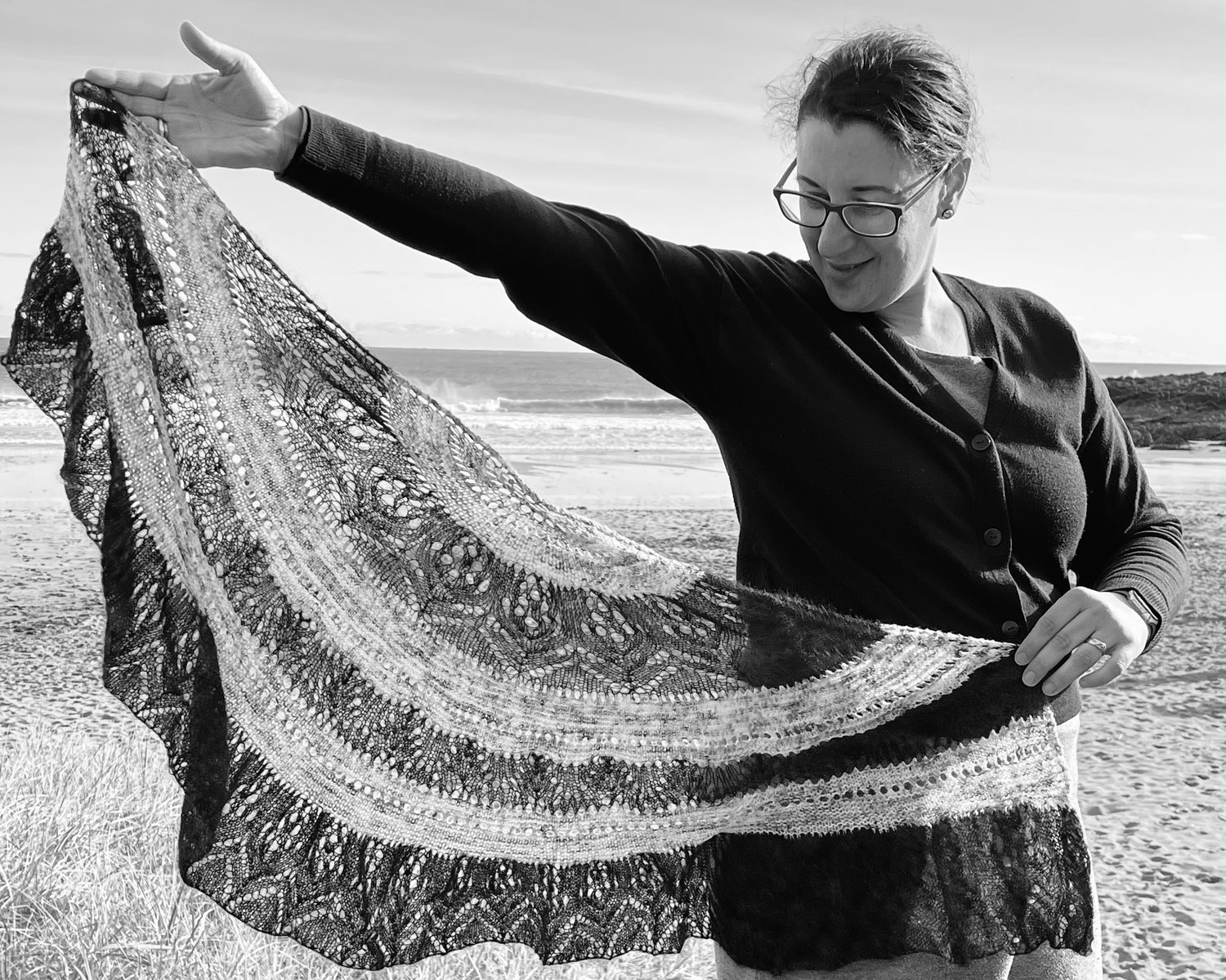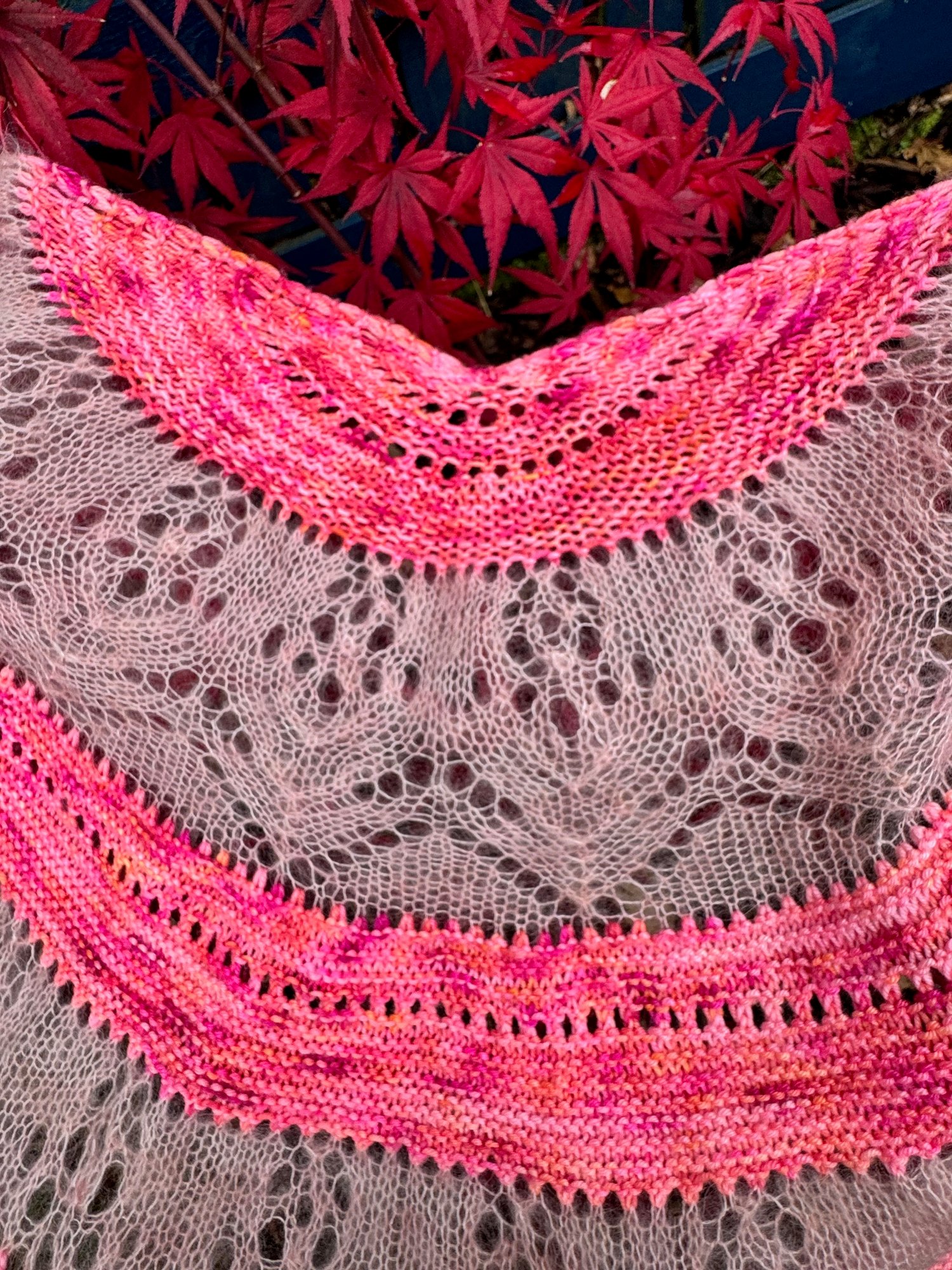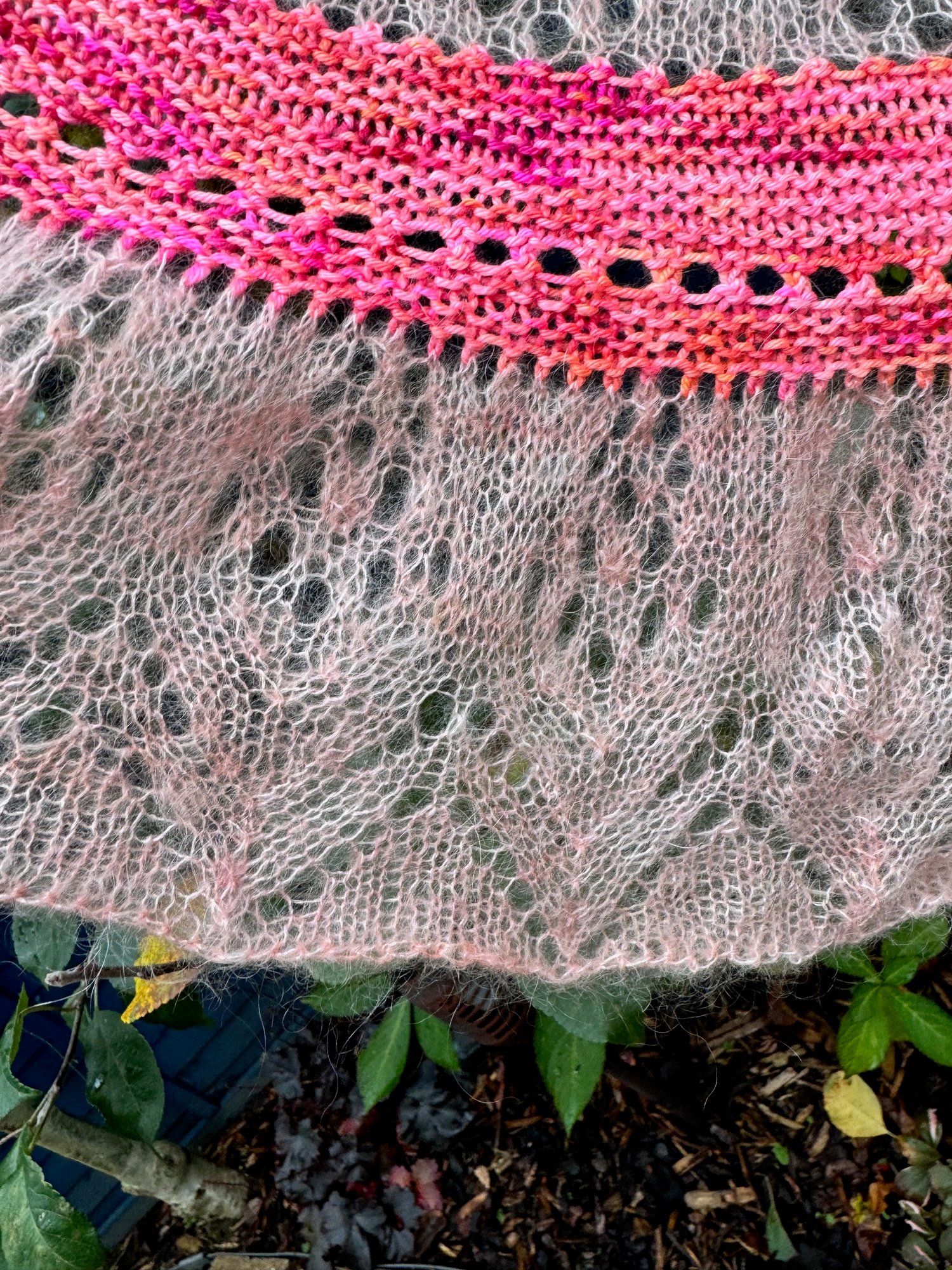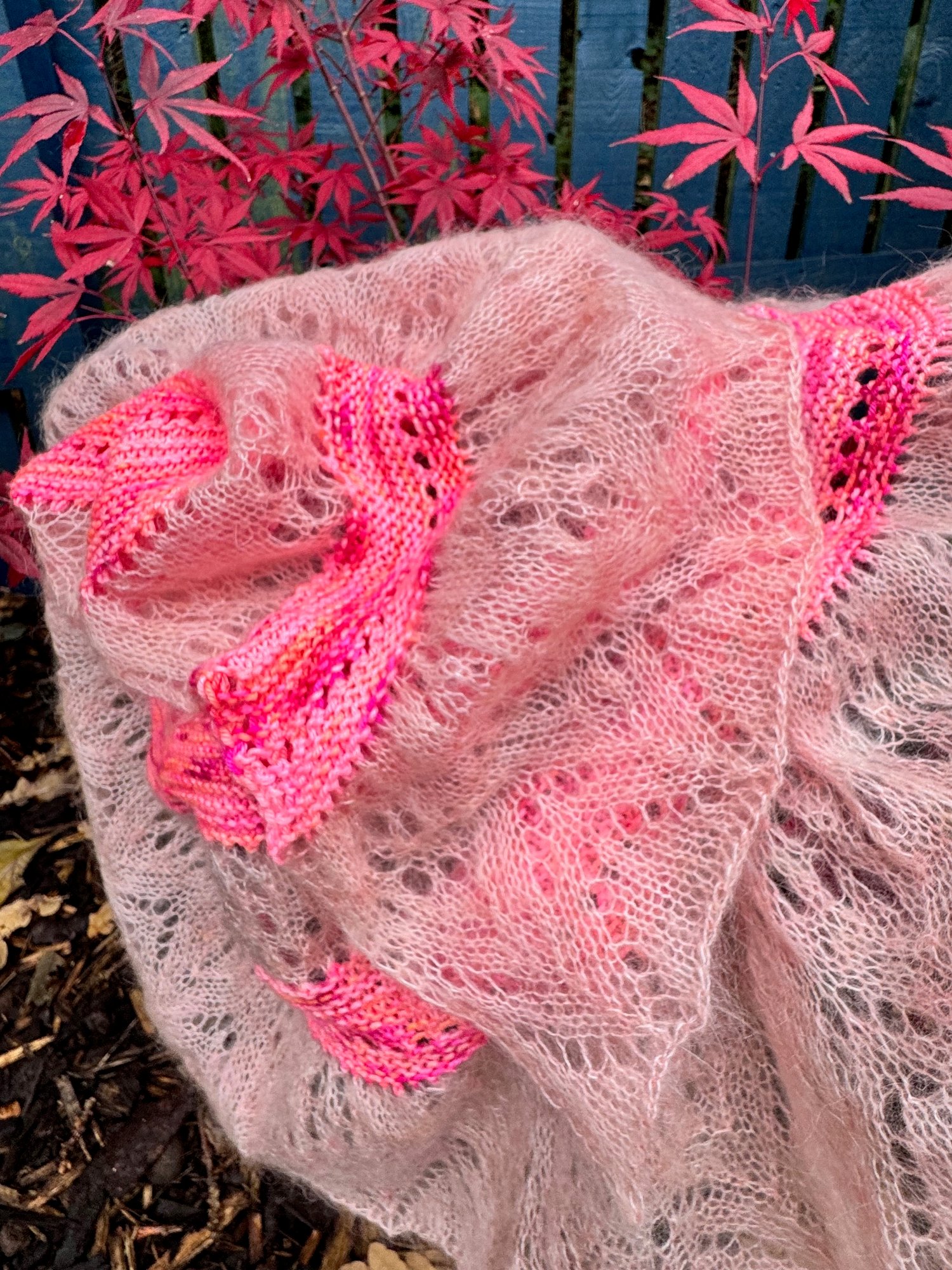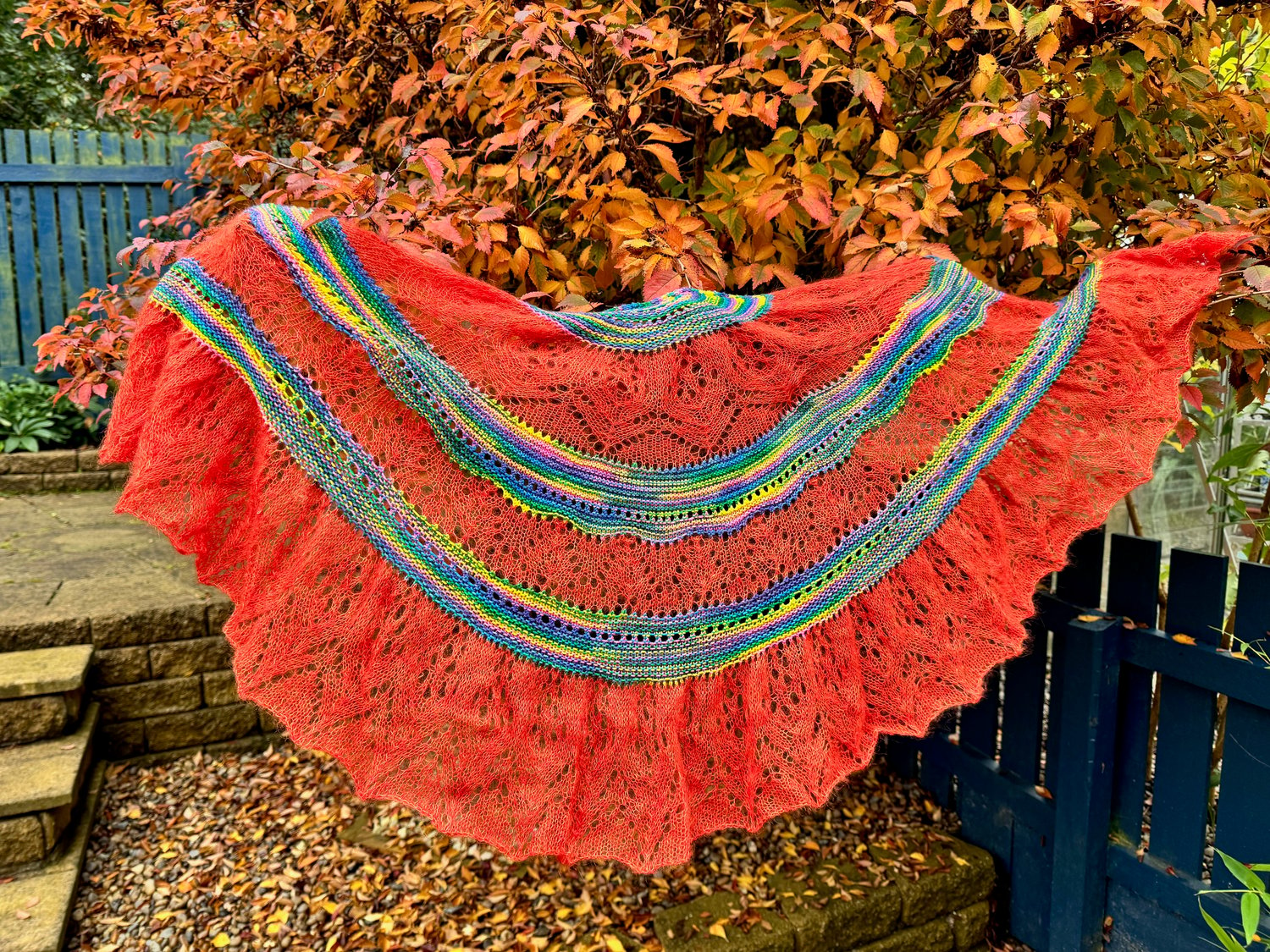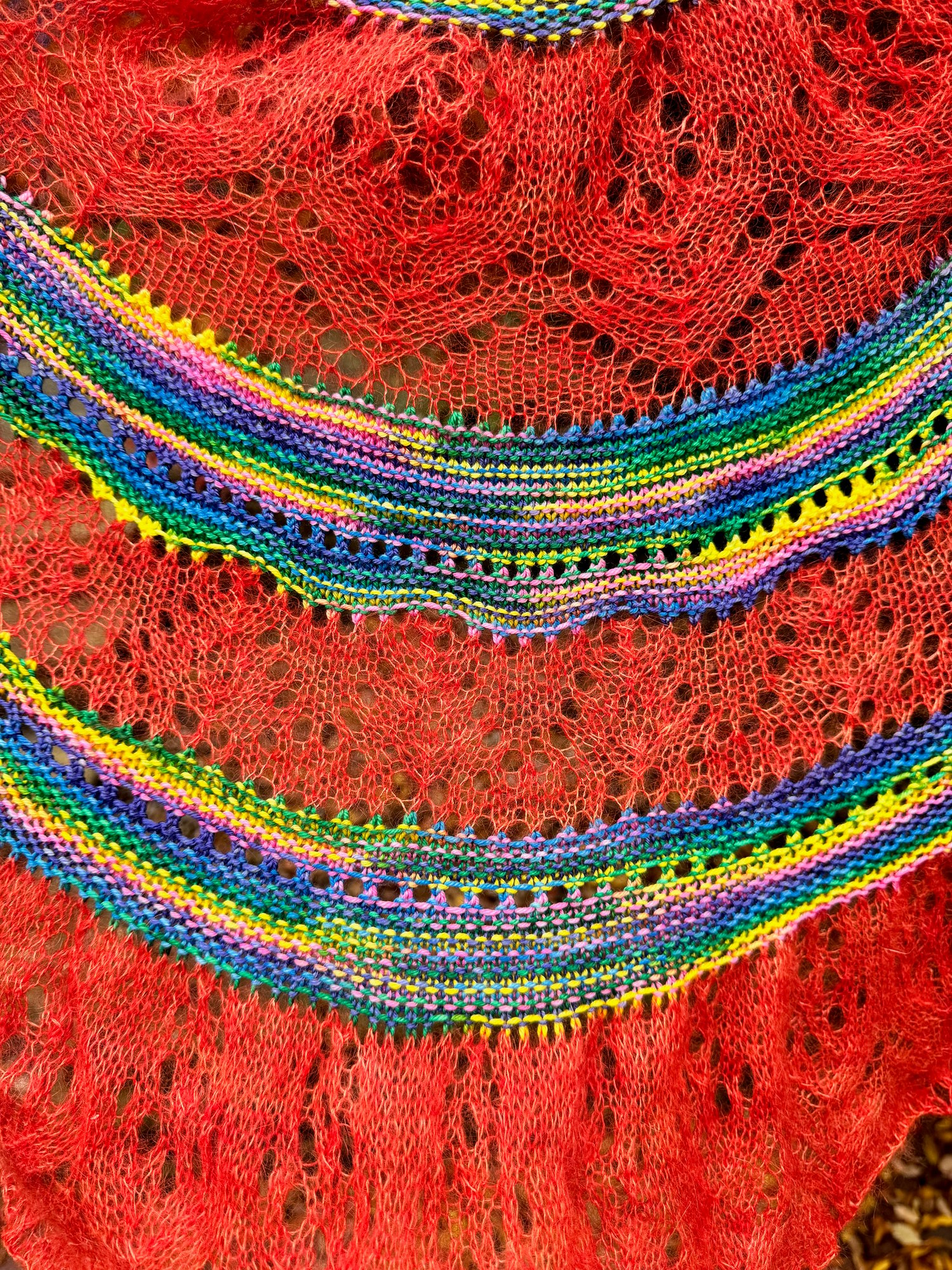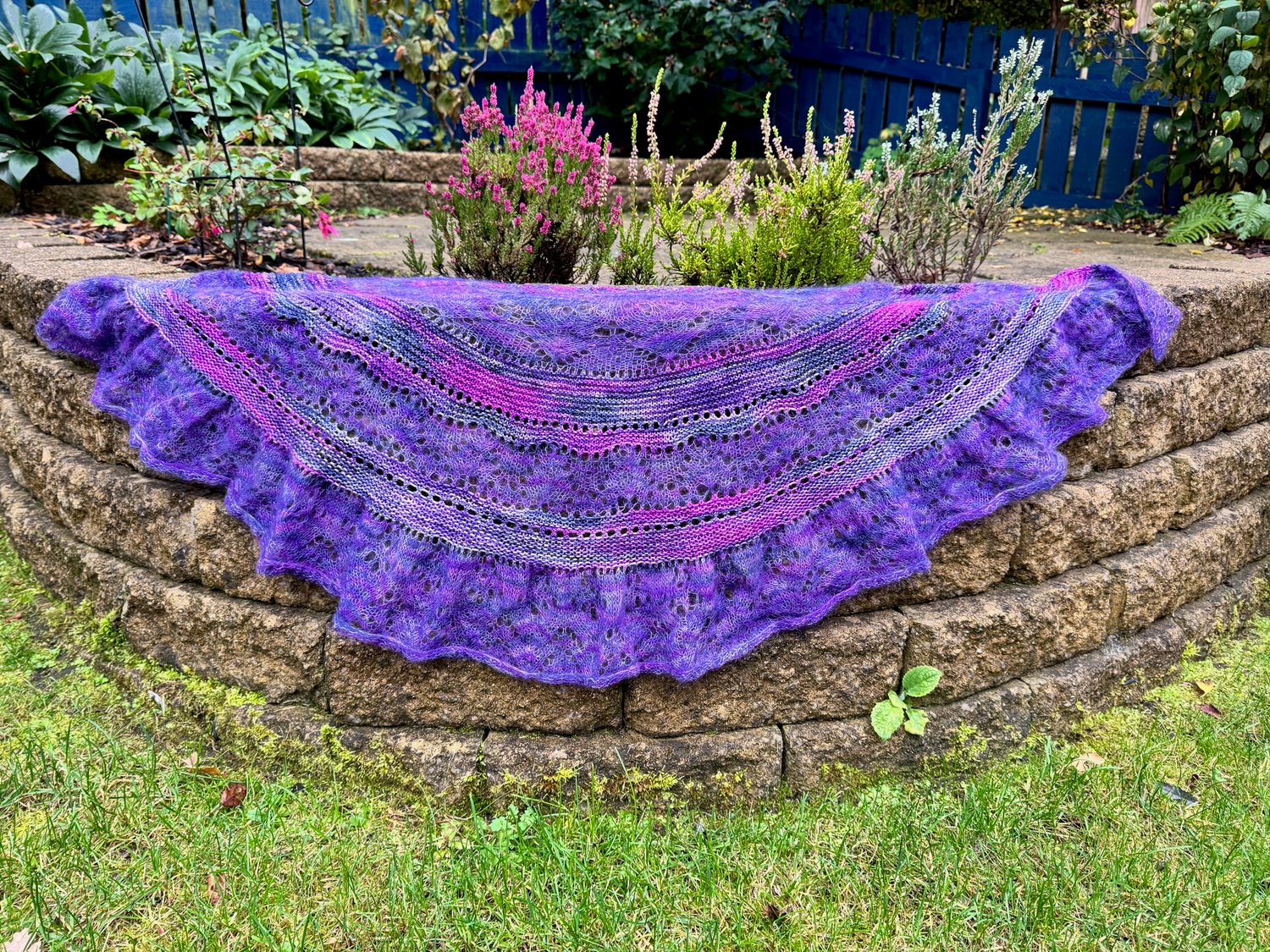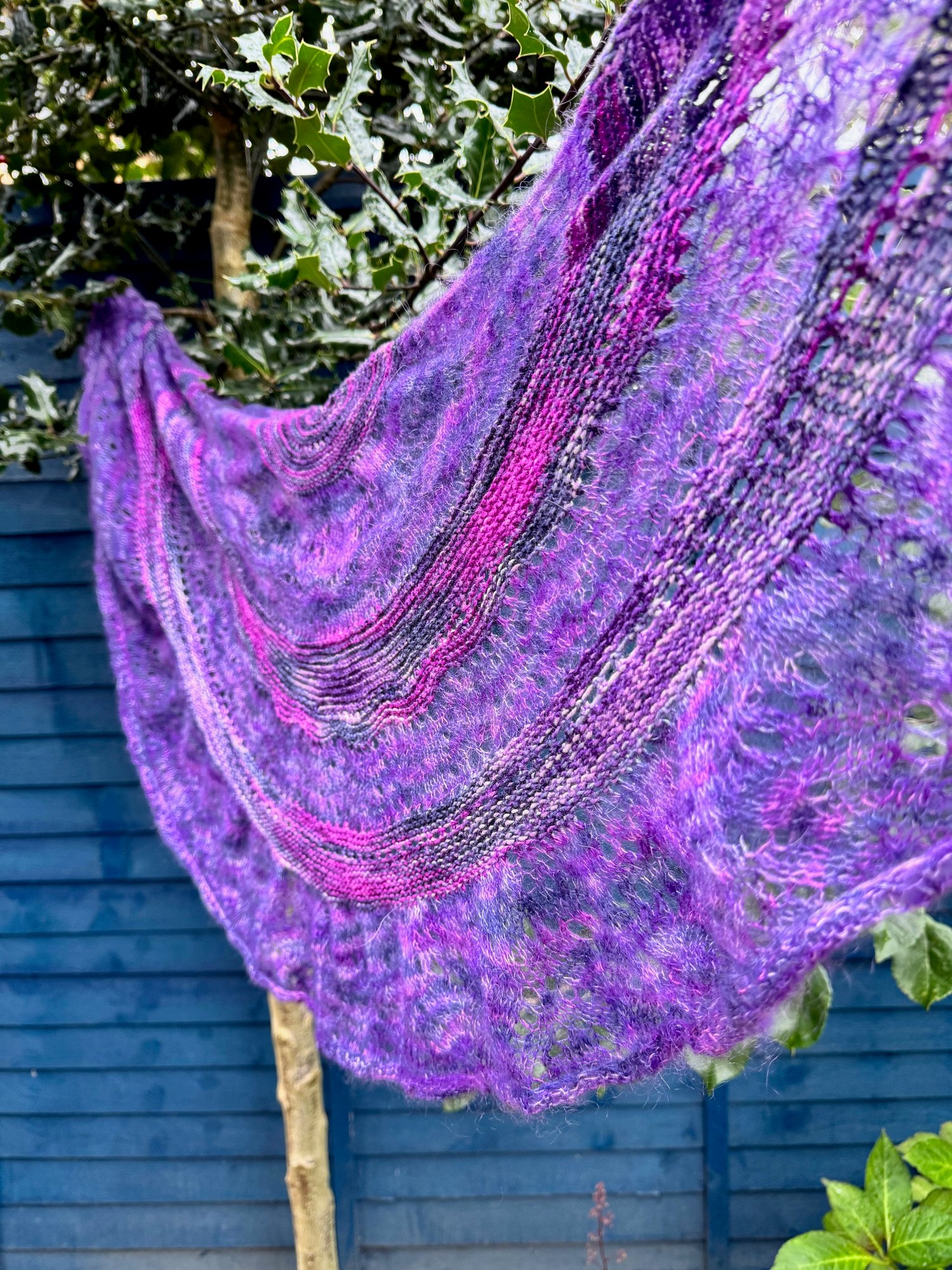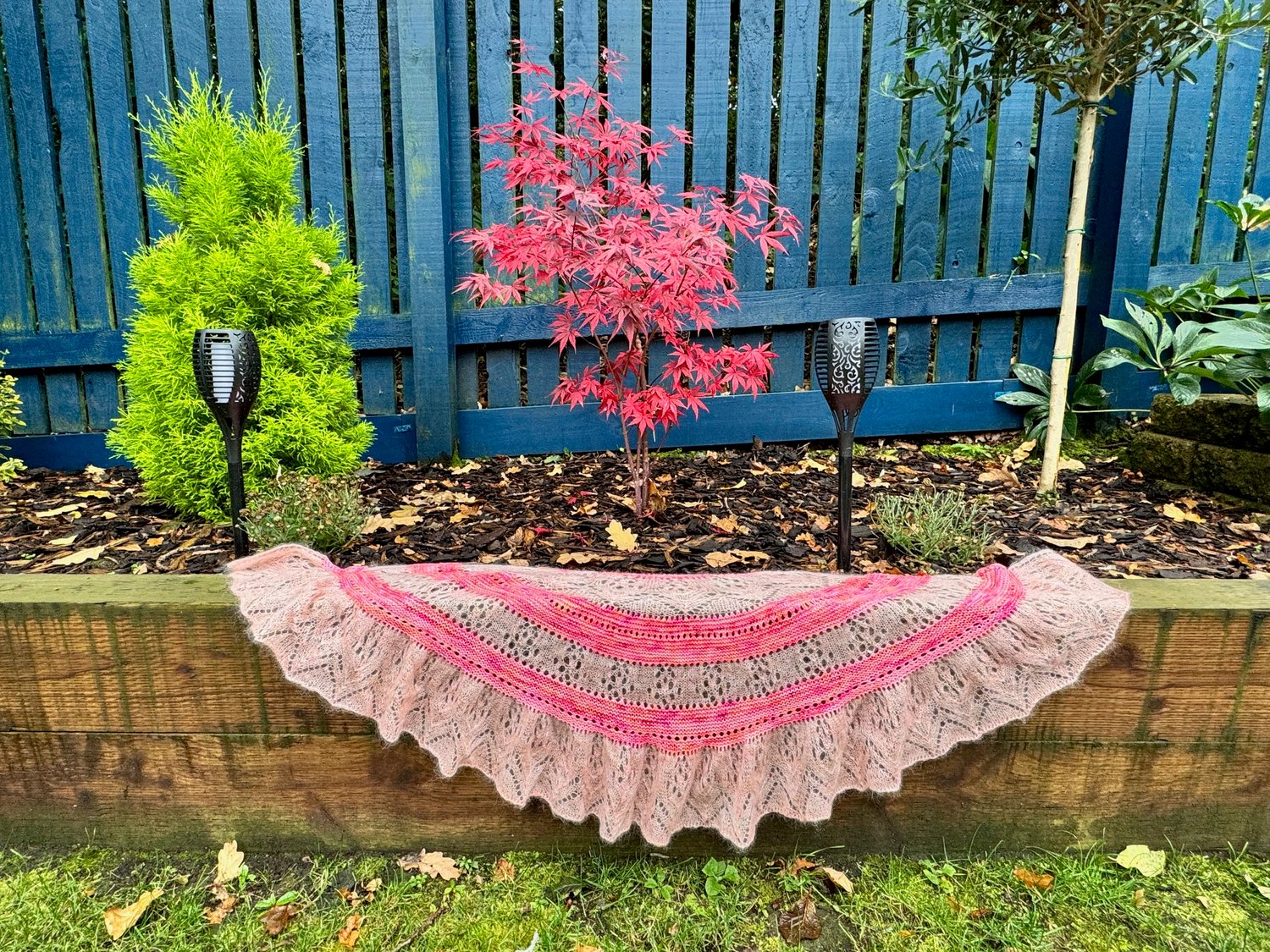Robach Shawl
The Robach Shawl is named for a special area of conservation on North Uist - one of the most botanically diverse systems in the Hebrides. Only in the machair along this island coastline can the Hebridean Marsh Orchid (Dactylorhiza Ebudensis) be seen in spring. The lace sections of the shawl echo the short, sword like leaves and delicate stacked flowers of this rare plant which grows in this special place.
The construction of the shawl is also inspired by Elizabeth Zimmerman’s ‘unventing’ of the Pi shawl, where increases double the stitch count in a regular pattern to create a generous half-circle.
Finished depth: 60cm
Finished length: 175cm
YARN:
MC: The Woolchemist 75% superwash merino, 25% mulberry silk 400 m / 437 yds per 100g skein
OR The Woolchemist, Extrafine 85% 19.5 micron superwash merino, 15% nylon 400 m / 437 yds per 100g skein
AND CC: The Woolchemist, 72% superkid mohair, 28% mulberry silk. 420m / 459 yds per 50g skein
OR to match gauge
TENSION
Tension: approx. 22 sts x 38 rows = 10 cm / 4 in after gentle blocking, measured over garter stitch worked flat using a 3.75mm needle.
The designer used 3.75 mm needles for gauge; test knitters used 3.5 mm needles . Block your swatch according to the finishing directions before measuring.
Differing tension may not impact the appearance of the shawl but will affect the amount of yarn used and the size of the finished shawl
Approximate yardage
MC: 300 m / 328 yds
CC1: 350 m / 382 yds
TECHNIQUES
Garter stitch, eyelets, lace using yarn over increases and simple decreases, lace chart (with written instructions also provided)
NOTIONS
Tapestry needle
Stitch markers (32)
NOTES
This is a top-down construction, with bands of garter stitch and lace. Increases of YO, K1 are used to double the stitch count for the ‘pi’ construction, with ‘mock’ increases of YO, K2tog to create eyelets in the latter stages of the shawl. Double Yarn Overs are used to create larger eyelets: this is dropped as one stitch on the return row.
Written instructions are provided as well as charts – use whichever method you prefer.
The chart shorts RIGHT SIDE ONLY, with each row being read from left to right.
Originally published in The Journal of Scottish Yarns Issue 3, this design is now available directly as a single pattern.


